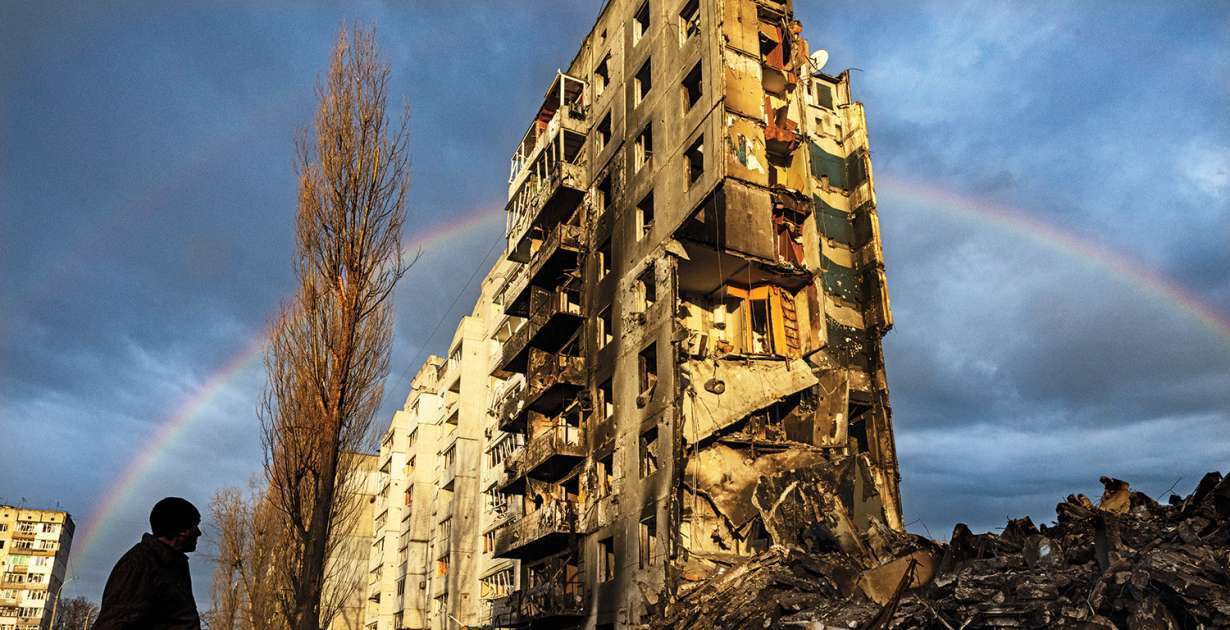Predictions about the future of war follow narratives and intellectual fashions. At the beginning of the millennium, the emergence of high-tech drones—the U.S. military’s all-seeing eyes in Afghanistan—fueled futuristic visions of battles contested by robots and computers. By the mid-2010s, the success of Russian information operations, election interference, and weaponized corruption in Europe and the United States had given rise to the idea that even a major country could be controlled without the use of force. Others thought that mutual dependence on trade and commerce in a globalized age would render a major war unlikely—or keep it locally contained.
The outbreak of the largest and most brutal European war since 1945 has once again reminded us not to project our wishful thinking or extrapolate from the past. So much of what pundits, politicians, and journalists predicted in the early hours of Russia’s three-pronged attack on Ukraine was wrong: that Russia’s military machine would be overwhelming, that Ukraine would quickly collapse, and that the West’s response would be weak. Those were just the first surprises. Who’d have thought trenches and artillery would feature so prominently in a 21st-century war?

-Acta-Non-Verba- on January 10th, 2023 at 03:33 UTC »
Paywall
Constant_Box2120 on January 9th, 2023 at 14:21 UTC »
How about we don't have the next war?
informednews on January 9th, 2023 at 13:19 UTC »
Submission statement:
This foreign policy piece collates the views of twelve experts on the most important lessons the global powers can learn from Russia’s war in Ukraine. It explores how to prevent, deter and—if necessary—fight the next conflict.
This is some of the advice from Anders Fogh Rasmussen on alliances:
"It is impossible not to draw parallels between Russia’s attack on Ukraine and China’s ambitions for Taiwan: a nuclear-armed autocracy threatening a smaller democracy, revanchist rhetoric about reuniting the motherland, a leader turning increasingly repressive at home and aggressive abroad. However, for every similarity there is a significant difference. China is now one of the world’s two predominant powers, and the global consequences of a war in the Taiwan Strait would be manifestly greater. A China-Taiwan war would quickly draw in other countries. Both Ukraine and Taiwan sit outside of formal treaty alliances, and neither benefits from a security guarantee like NATO’s Article 5. This makes it even more important that the free world learns the right lessons from Russia’s invasion of Ukraine if it wants to deter any attempt by China to take Taiwan by force. First, when you do not have a treaty to rely on, words matter. In the buildup to the war, Russian President Vladimir Putin made his ambitions explicit: “True sovereignty of Ukraine is possible only in partnership with Russia,” he wrote in July 2021. Days before the invasion, he called Ukraine an “inalienable part of \[Russia’s\] history, culture, and spiritual space.” Putin repeatedly denied Ukraine’s right to exist, yet Western leaders ignored the risk of a full-scale invasion. The world cannot make the same mistake with China."